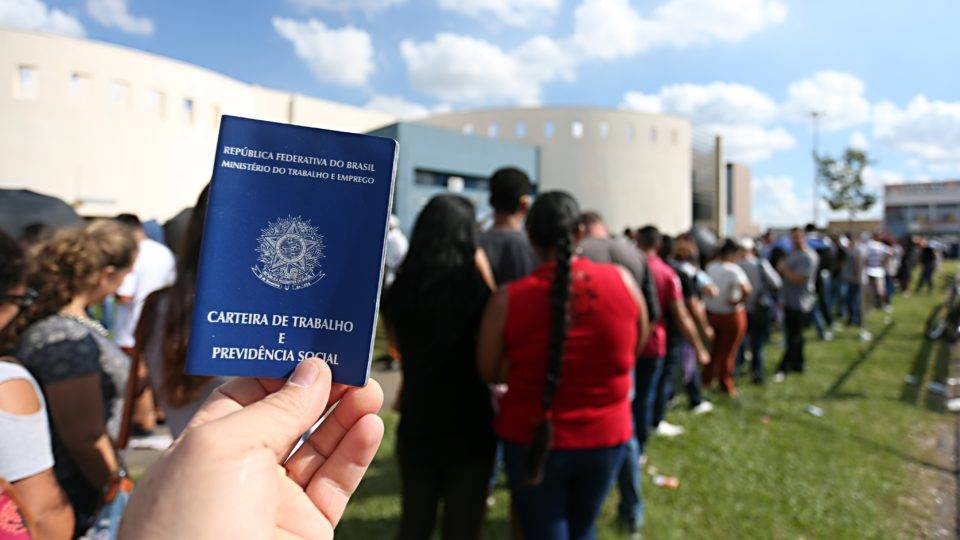RIO DE JANEIRO, BRAZIL – Brazil has more than 2,000 different occupations in the formal labor market. But almost 1/3 of the 40.8 million jobs recorded at the beginning of the year were concentrated in ten occupations that pay, on average, less than two minimum wages per month.
Administrative assistant is the most common occupation in Brazil, with 2.1 million jobs. Next in line is office assistant, with 1.9 million jobs. Salesperson, janitor, and truck driver are also on the list of the ten most employable professions in the country.
These occupations total 12.9 million employees and pay an average of R$2,298 (US$489) per month, according to data from the Ministry of Labor and Social Security. Of Brazil’s ten most employing professions, six pay less than two minimum wages (R$2,424).

BALANCE
The scenario repeats itself among the ten professions that created the most vacancies in 2021. In this case, eight of the ten occupations pay less than two minimum wages. The largest balance, for example, was for cleaners, who pay an average of R$1,374 per month. Brazil currently has 1.7 million cleaners, and 142,000 of these vacancies were opened in 2021.
METHODOLOGY
The Ministry of Labor and Social Security listed the ten occupations with the largest job stocks and the ten professions that opened the most vacancies in 2021 at the request of Poder360. Then, Poder360 surveyed the average income of these occupations in the recently released Brazilian Occupations Guide.
TWO SIDES
The predominance of vacancies in occupations that pay less than two minimum wages has two sides for specialists. It is good because low-qualified workers have managed to formalize their jobs, which reduces unemployment and informality. However, it isn’t good because it flattens the country’s income mass – a fundamental vector for family consumption.
The Pnad (National Household Sample Survey) of the IBGE (Brazilian Institute of Geography and Statistics) reflects this movement. According to the survey, unemployment fell to 11.2% in the quarter ending in February 2022. It is the lowest result for the period since 2016. However, the average income of the Brazilian worker was R$2,511 in the period -8.8% lower than that recorded one year earlier.
“Brazil tends to generate low-income jobs. It is something structural. But there is also a conjunctural aspect at this moment because of the economic recovery,” said FGV IBRE (Brazilian Institute of Economics of the Getúlio Vargas Foundation) researcher Daniel Duque.
“The Brazilian labor market has a higher proportion of jobs that require low qualifications and, in general, have lower incomes. And now, faced with the difficulty of getting a job, people are more susceptible to accepting lower salaries,” said IDados researcher Bruno Ottoni.
For Duque, “it’s not all bad news. “It means that less qualified workers who might have been informal and unemployed before are getting jobs. But this should not happen so long because it affects the economy’s productivity,” he said.
There is also a political aspect. Former president Luiz Inácio Lula da Silva (Workers’ Party – PT) has his best performance, with 51% of voting intention, among workers that receive up to two minimum wages, according to PoderData. The insertion -or reinsertion- of this mass in the formal market can improve the situation of President Jair Bolsonaro (PL).

